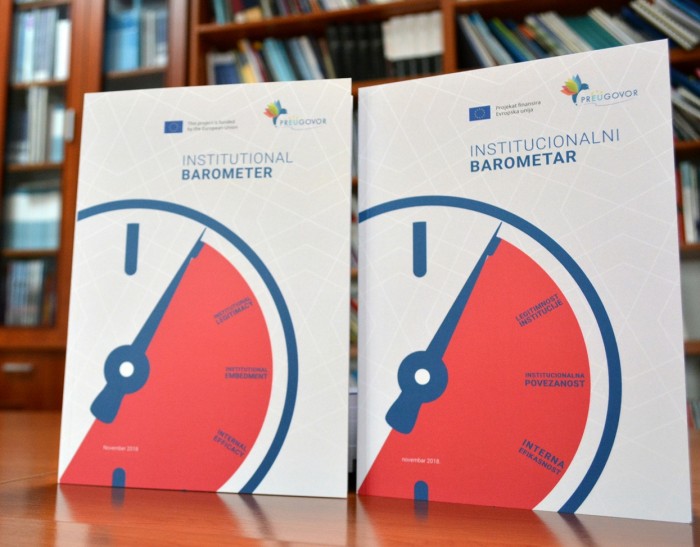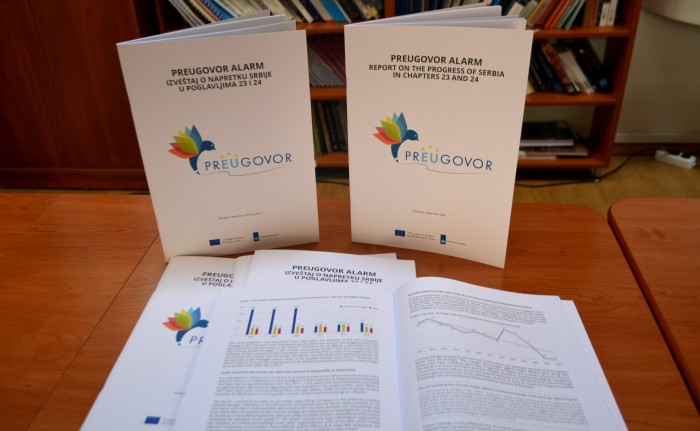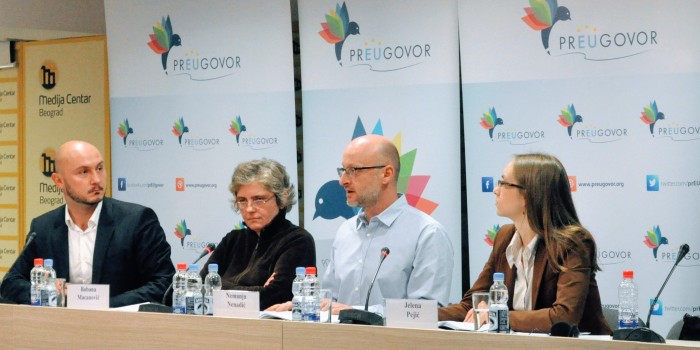With a view to monitoring the measurable effects of the reforms in the European integration process of the Republic of Serbia, the members of coalition prEUgovor have selected six institutions whose competences fall under Chapter 23 (Justice and Fundamental Rights) and Chapter 24 (Justice, Freedom and Security).
To this end, a methodology has been devised to measure the effectiveness of these institutions - the overall performance of some of them, and specific activities of others. The selected six institutions are:
- the Anticorruption Agency
- the Internal Control Department of the Ministry of the Interior
- the Commissariat for Refugees and Migrations
- the Centre for Human Trafficking Victims Protection
- the Commissioner for Protection of Equality
- the Commissioner for Information of Public Importance and Personal Data Protection.
Our approach was to formulate indicators that will reflect outcomes and processes. Special attention was to be paid to implementation, which was recognised as the main challenge and therefore also the focus of the EU monitoring.
The indicators were divided into three “baskets” that reflect three dimensions of institutional functioning:
- internal efficacy
- institutional embedment
- institutional legitimacy
This approach enabled us to group various types of indicators together, reflecting various dimensions of governance they measure. It also enabled us to get the information about the efficiency of the institutional system and, by following these indicators in the future, the country’s track record when it comes to improvements it has made in certain areas. By grouping our indicators into the “baskets” we were able to choose from a myriad of indicators the ones that are relevant for a specific institutional design and by using various sources of data to juxtapose public perceptions and experience on the one side with pure administrative data on the other.
We are confident in this one-of-a-kind approach because the three baskets that reflect the three dimensions of institutional effectiveness are mutually balanced and create a unique checks-and-balance system with the measurement framework, thus minimising the possibility of arbitrary assessments and interpretations of results. The results obtained using this methodology could be a source of information for relevant actors, both the decision makers and civil society organisations, as they can use them to formulate concrete proposals on how to overcome the key shortcomings and problems and improve institutional design.
This issue of Institutional Barometer is a pioneering attempt of the coalition prEUgovor to monitor the measureable effects in the field by using a unique methodology that we will definitely try and build on in the years to come by amending and adjusting the indicators.
___________________
The Action is supported by the European Union through the program “Civil Society Facility” under the Instrument for Pre-Accession Assistance (IPA). The contents of the Report are the sole responsibility of the publisher and views expressed in this document are not necessarily those of the European Union.
Coalition prEUgovor is a network of civil society organisations formed in order to monitor the implementation of policies relating to the accession negotiations between Serbia and the EU, with an emphasis on Chapters 23 and 24 of the Acquis. In doing so, the coalition aims to use the EU integration process to help accomplish substantial progress in the further democratisation of the Serbian society.
Members of prEUgovor coalition: ASTRA - Anti-Trafficking Action, Autonomous Women’s Centre (AWC), Belgrade Centre for Security Policy (BCSP), Centre for Investigative Journalism in Serbia (CINS), Centre for Applied European Studies (CPES), Group 484 and Transparency Serbia (TS).



